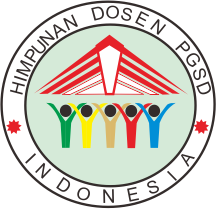The Color Concept of Baju Bodo as Traditional Clothing at Schools in Makassar: Philosophical Perspective and Ethno-Policy Framework
DOI:
https://doi.org/10.30595/dinamika.v15i2.18222Keywords:
Etno-policy, Philosophical Perspective, Baju BodoAbstract
This study aims to examine the philosophical perspective of the Bodo shirt as one of the traditional clothes of South Sulawesi, which will be applied in the regulations for the use of traditional clothes in schools in Makassar City. This is based on the Minister of Education and Culture Regulation Number 50 of 2022 concerning School Uniforms for Students at the Elementary and Secondary Education Levels. This study used a qualitative approach with an ethnomethodological research design. Data analysis used indexicality analysis and reflexivity analysis. This analysis is intended to provide an overview of group agreement regarding the use of Baju Bodo in elementary school policies as one of the local cultural assets as well as the implementation of ethno-policies for cultural literacy. Determination of informants was carried out by means of purposive sampling, namely researchers who determine the informants themselves to be interviewed based on representative considerations. The informants in this study included teachers, school principals, and community leaders who knew about the philosophy of the Baju Bodo and the color schemes used in the use of Baju Bodo for the Bugis people of South Sulawesi. The results of the study show that in a philosophical study the structure of the baju bodo represents the characteristics of Bugis-Makassar women in general. The distribution of colors in Baju Bodo is divided into two types, the first is in everyday life, such as children under the age of 10 wearing Baju Bodo which are usually called Waju Pella-Pella, this shirt is Ivory Yellow. This shirt is called waju pella-pella or butterfly because it depicts the world of small children who are full of joy. The yellow color of ivory is an analogy for the child to mature quickly and be ready to face life's challenges. Derived from the word maridi (ivory yellow) which means ripe.References
Bambang Prawiro, A. M. (2015). Religion and the Local Tradition of Life Cycle Rituals in Kampung Naga, West Java. Al-Albab, 4(1), 55–68. https://doi.org/10.24260/alalbab.v4i1.277
Demmalino, E. B., Ibrahim, T., & Lumoindong, Y. (2019). PANRITA LOPI: Cultural Value and Religiosity Behind Professionalism of Making Pinisi Boats in Bulukumba Regency. ETNOSIA : Jurnal Etnografi Indonesia, 4(1), 1. https://doi.org/10.31947/etnosia.v4i1.6422
Ernawati, T., Suryani, I., & Sukiman, S. (2022). Character Education for Children: The Study on The Good and Bad Values. Jurnal Basicedu, 6(2), 2199–2207. https://doi.org/10.31004/basicedu.v6i2.2350
Idris, F., Hassan, Z., Ya’acob, A., Gill, S. K., & Awal, N. A. M. (2012). The Role of Education in Shaping Youth’s National Identity. Procedia - Social and Behavioral Sciences, 59, 443–450. https://doi.org/10.1016/j.sbspro.2012.09.299
Jumardi, I. (2020). … Di Kecamatan Tanralili Kabupaten Maros (Analisis Implementasinilai-Nilai Kearifan Lokal Terhadap Pengamalan Sila Kedua Pancasila …. Jurnal PENA: Penelitian Dan Penalaran, 7, 151–163. https://jurnal.unismuh.ac.id/index.php/pena/article/view/4668
Marwing, A. (2018). THE TRADITION OF MAPPANGUJU AND DOASSALAMA ’’ ON BONE ’ S BUGINESE SOCIETY PILGRIM AGE PROCESS IN PHENOMENOLOGY AND ISLAMIC LAW. 123–129.
Parker, R., Thomsen, B. S., & Berry, A. (2022). Learning Through Play at School – A Framework for Policy and Practice. Frontiers in Education, 7(February), 1–12. https://doi.org/10.3389/feduc.2022.751801
Yusrini, R., & Yunus, I. (2023). LITERATURE & LITERACY BUGIS CULTURE DECONSTRUCTION IN NOVEL LA GALIGO 2. 1(April), 35–46.
Downloads
Published
How to Cite
Issue
Section
License
Authors who publish with this journal agree to the following terms:
Authors retain copyright and grant the journal right of first publication with the work simultaneously licensed under a Creative Commons Attribution License that allows others to share the work with an acknowledgement of the work's authorship and initial publication in this journal.
Authors are able to enter into separate, additional contractual arrangements for the non-exclusive distribution of the journal's published version of the work (e.g., post it to an institutional repository or publish it in a book), with an acknowledgement of its initial publication in this journal.
Authors are permitted and encouraged to post their work online (e.g., in institutional repositories or on their website) prior to and during the submission process, as it can lead to productive exchanges, as well as earlier and greater citation of published work (See The Effect of Open Access).

Dinamika Jurnal Ilmiah Pendidikan Dasar is licensed under a Creative Commons Attribution 4.0 International License.













